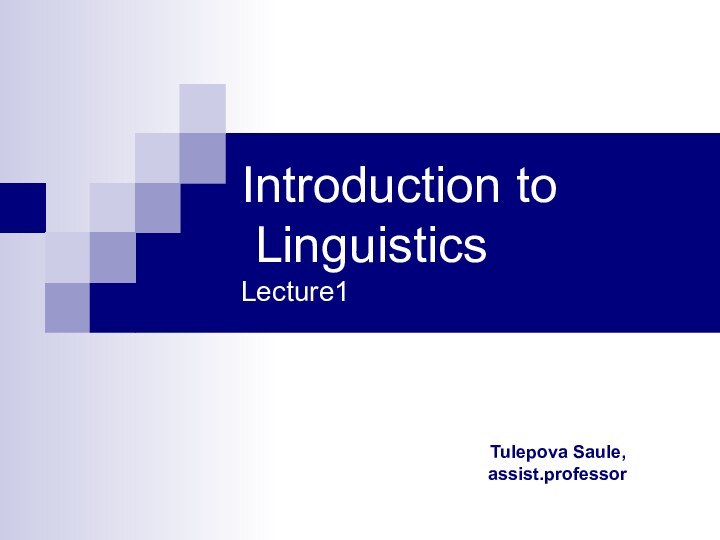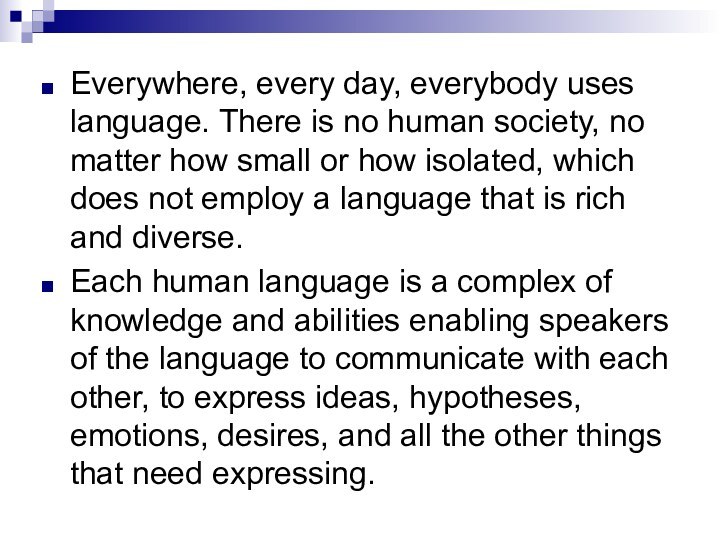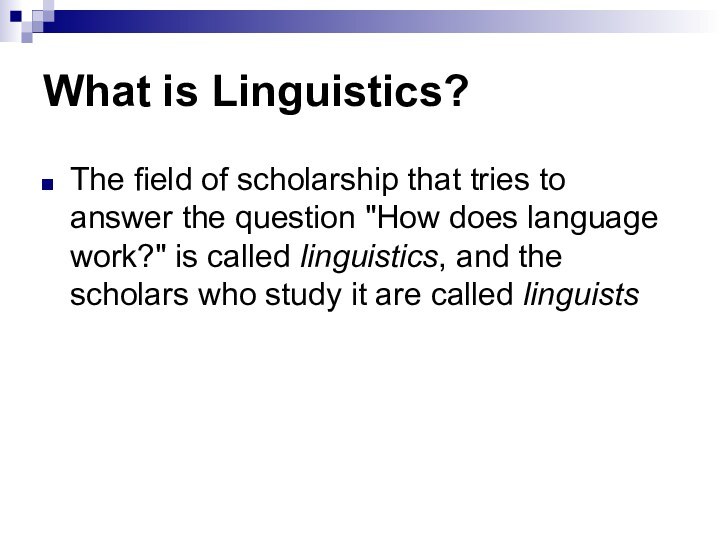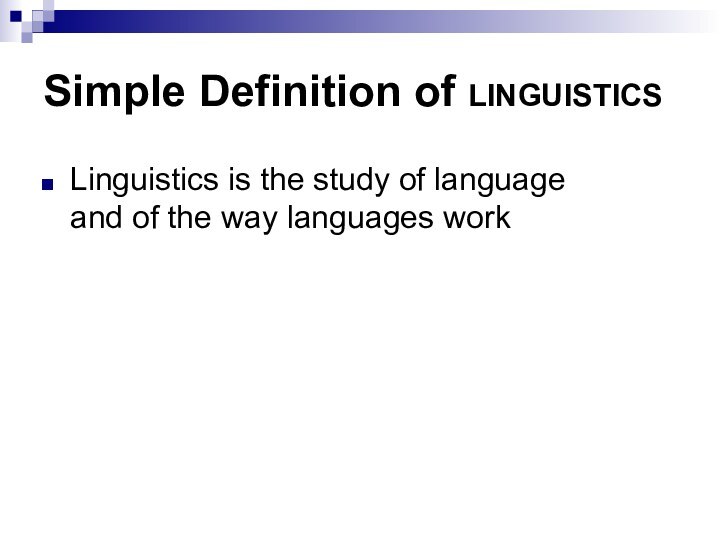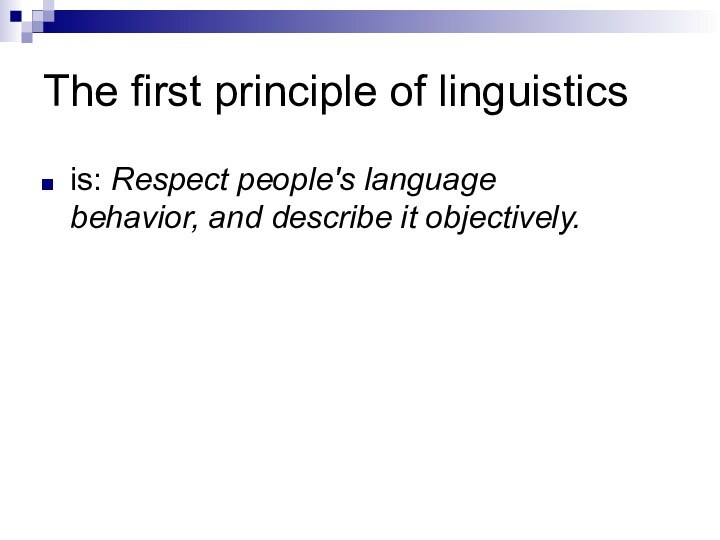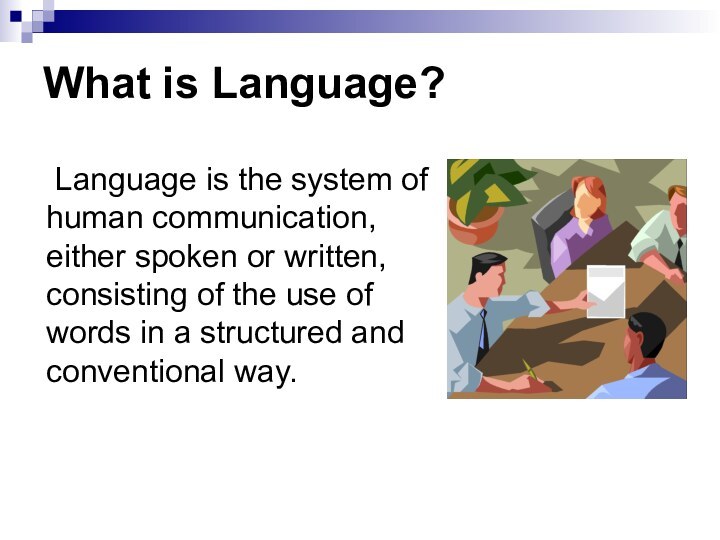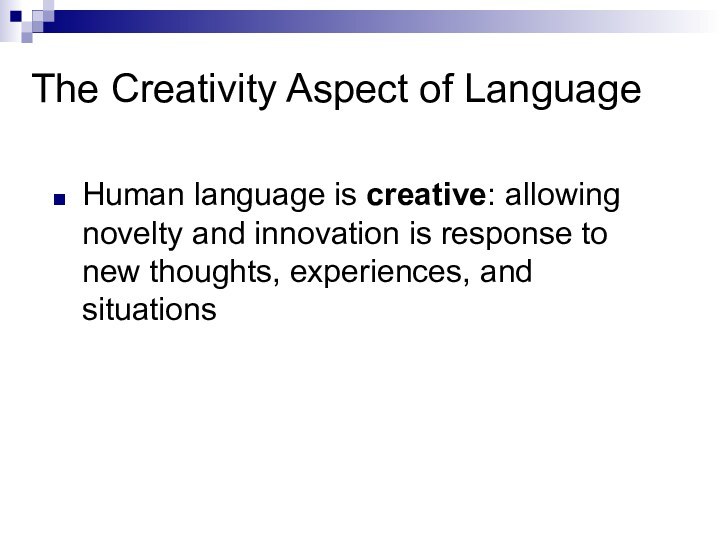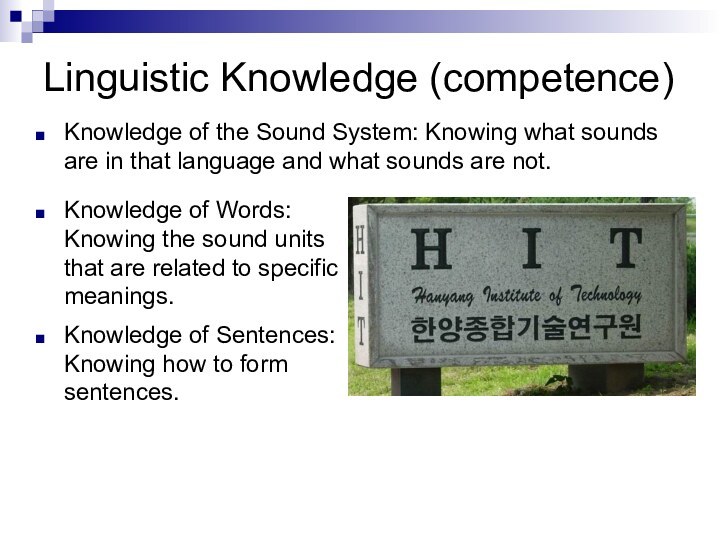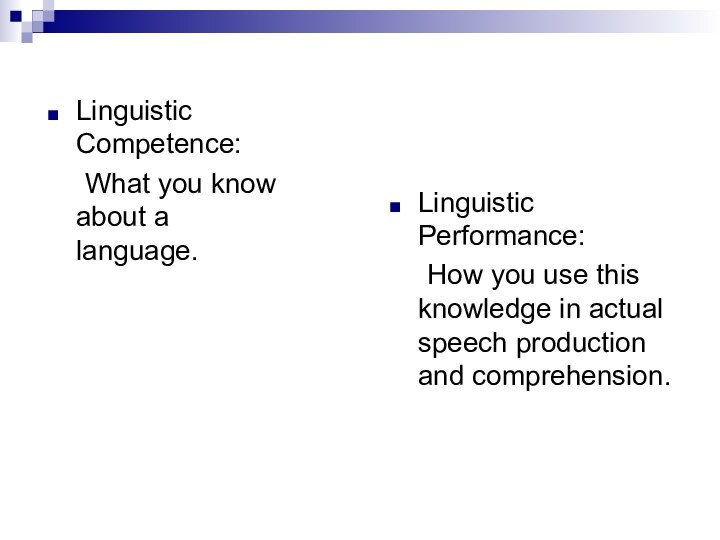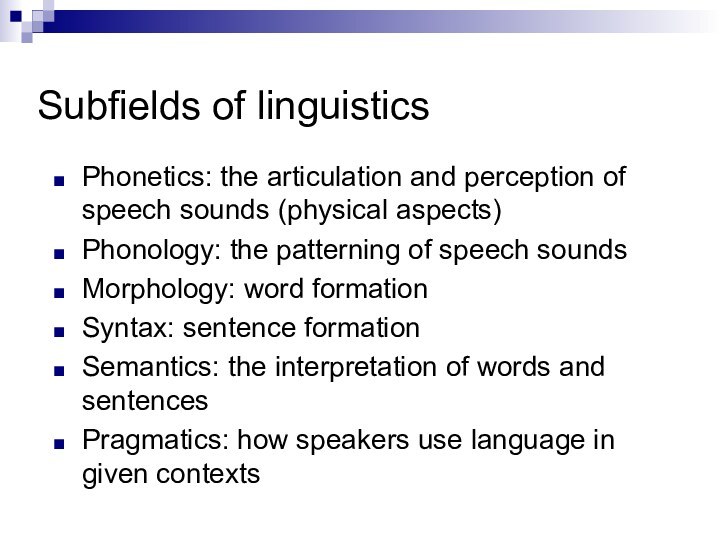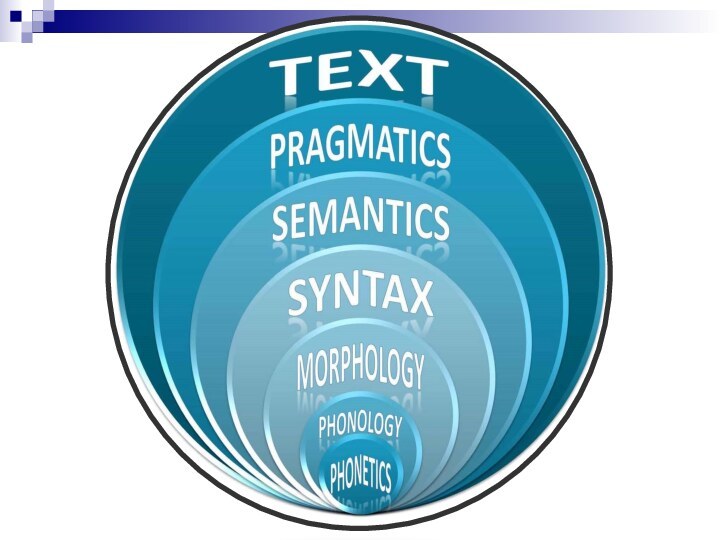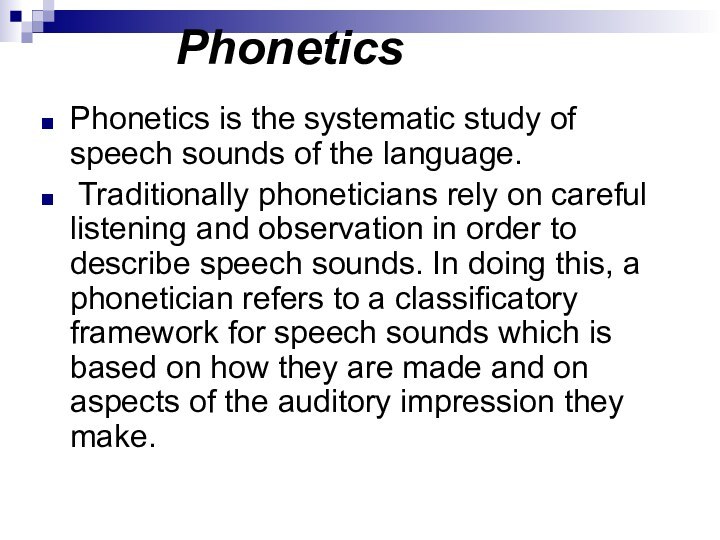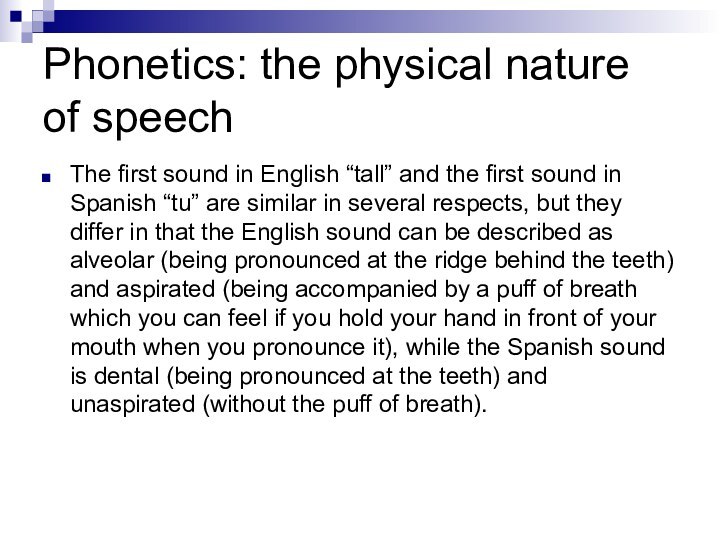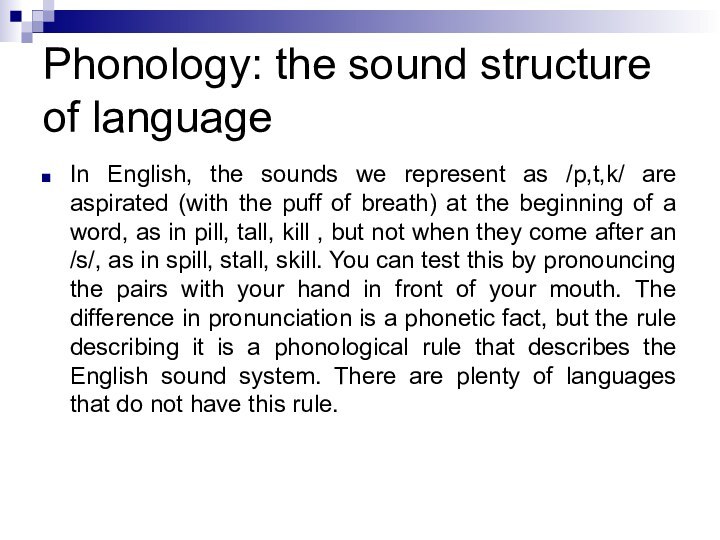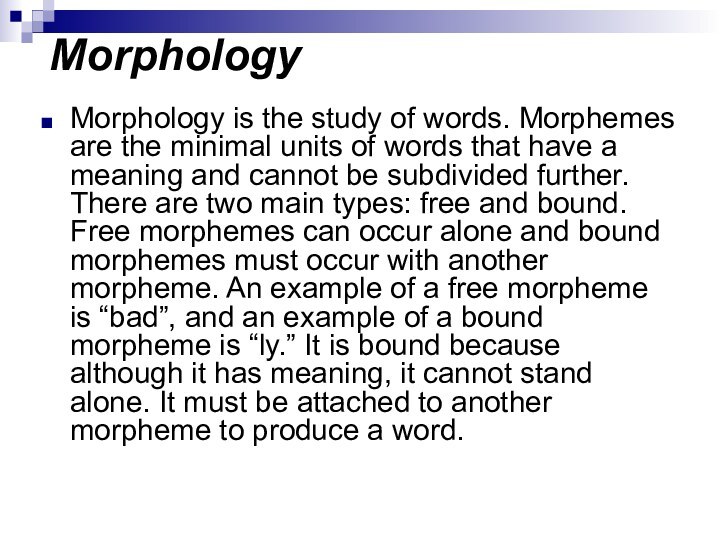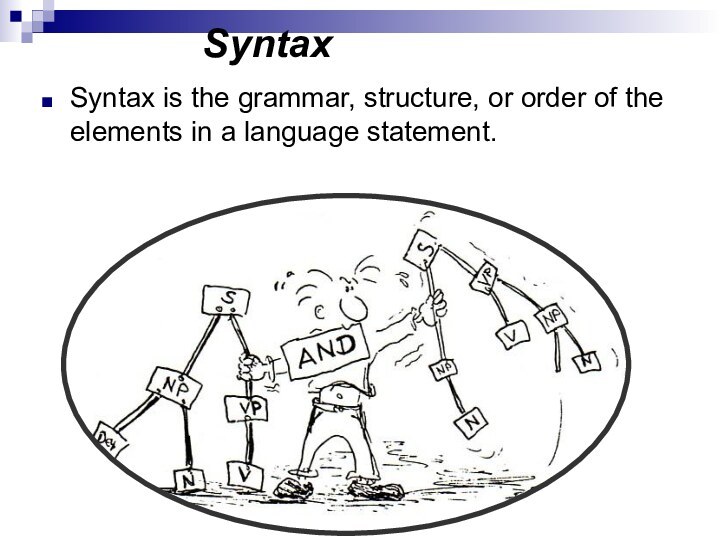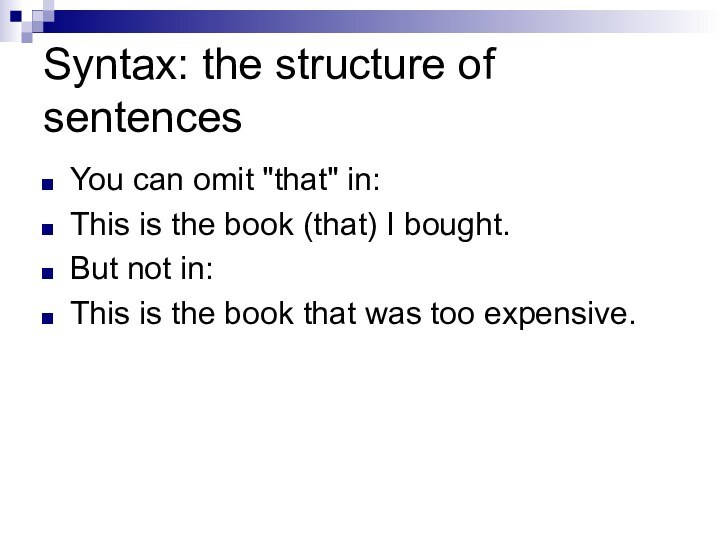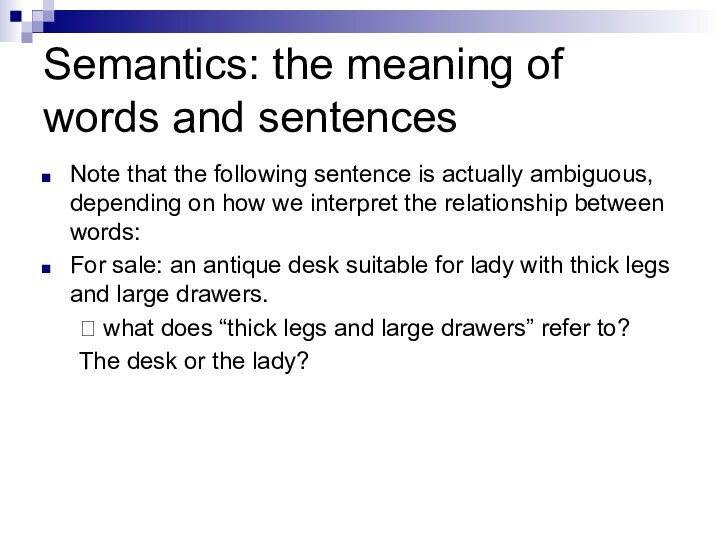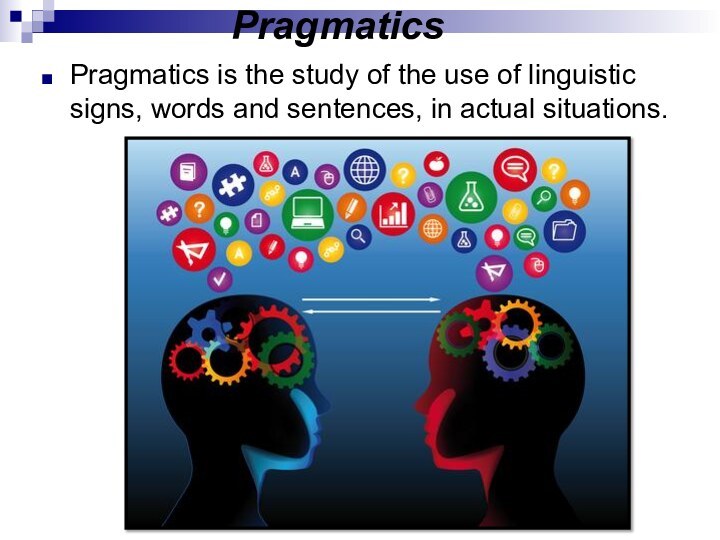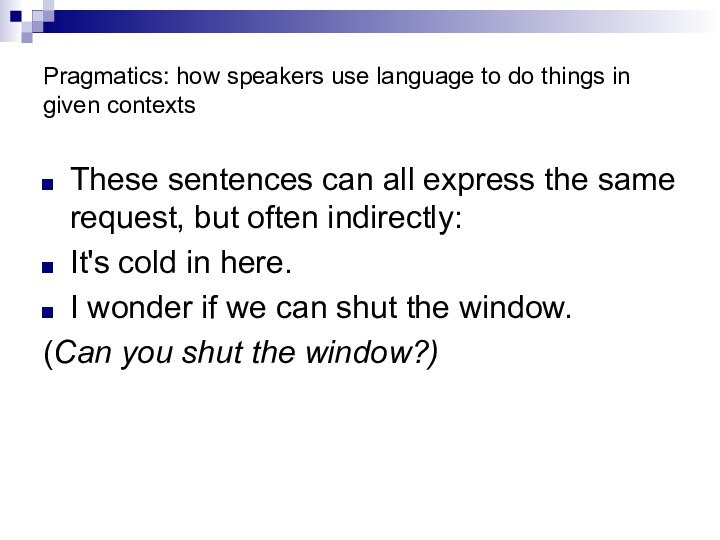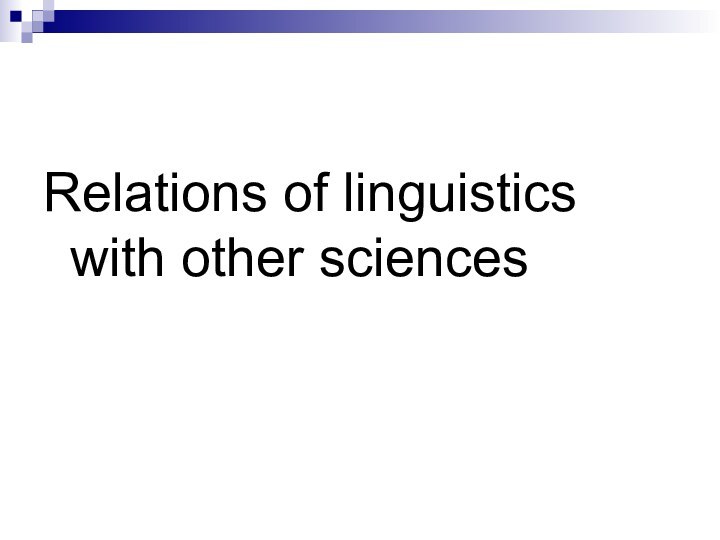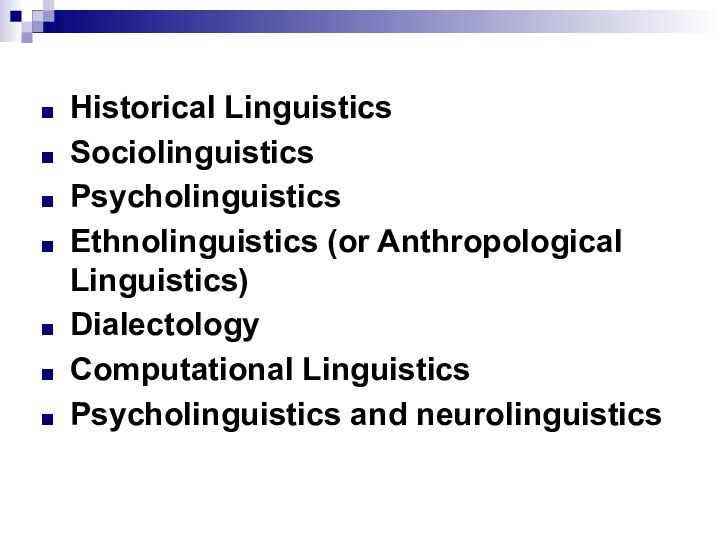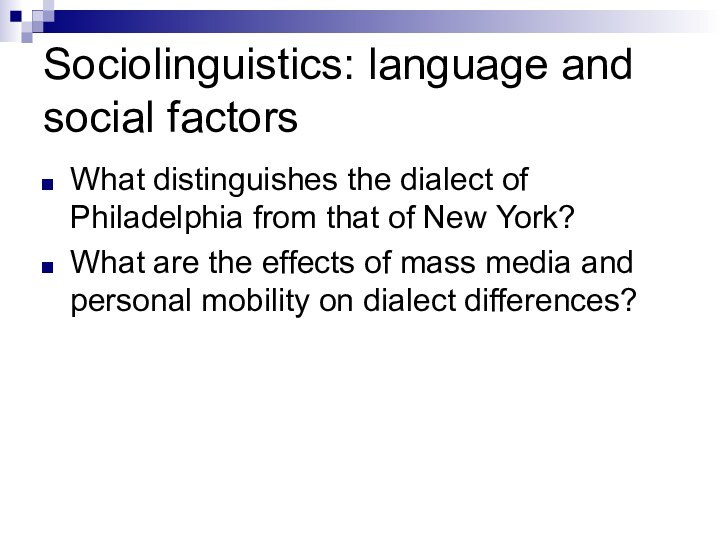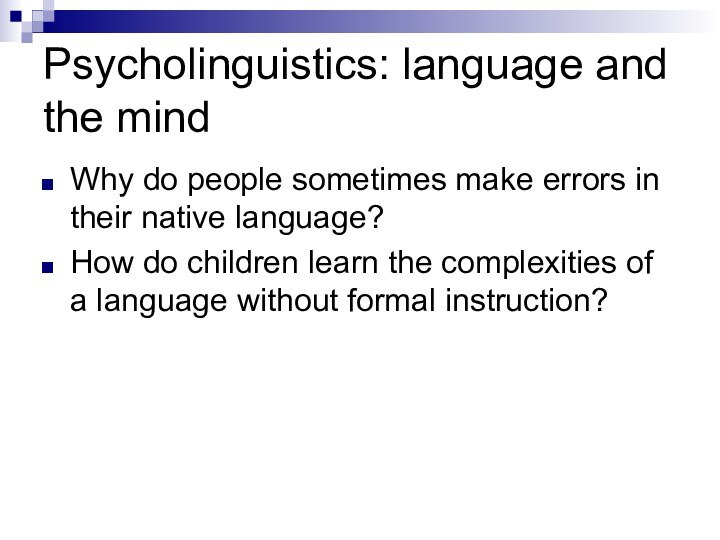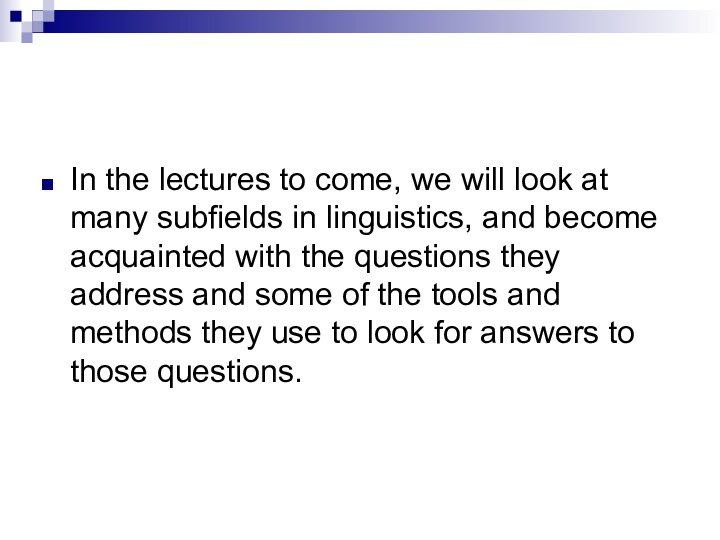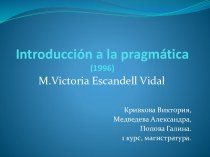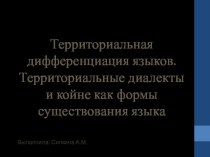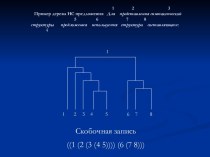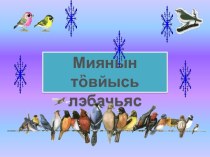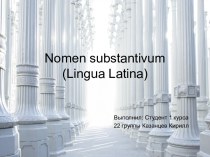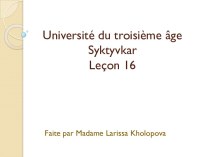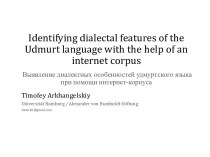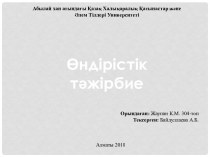Слайд 2
Everywhere, every day, everybody uses language. There is
no human society, no matter how small or how
isolated, which does not employ a language that is rich and diverse.
Each human language is a complex of knowledge and abilities enabling speakers of the language to communicate with each other, to express ideas, hypotheses, emotions, desires, and all the other things that need expressing.
Слайд 3
What is Linguistics?
The field of scholarship that tries
to answer the question "How does language work?" is
called linguistics, and the scholars who study it are called linguists
Слайд 4
Simple Definition of linguistics
Linguistics is the study of language
and of the way languages work
Слайд 5
The first principle of linguistics
is: Respect people's language
behavior, and describe it objectively.
Слайд 6
What is Language?
Language is the system of
human communication, either spoken or written, consisting of the
use of words in a structured and conventional way.
Слайд 7
The Creativity Aspect of Language
Human language is creative:
allowing novelty and innovation is response to new thoughts,
experiences, and situations
Слайд 8
Linguistic Knowledge (competence)
Knowledge of Words: Knowing the sound
units that are related to specific meanings.
Knowledge of Sentences:
Knowing how to form sentences.
Knowledge of the Sound System: Knowing what sounds are in that language and what sounds are not.
Слайд 9
Linguistic Performance:
How you use this knowledge in
actual speech production and comprehension.
Linguistic Competence:
What you know
about a language.
Слайд 10
Subfields of linguistics
Phonetics: the articulation and perception of
speech sounds (physical aspects)
Phonology: the patterning of speech sounds
Morphology: word formation
Syntax: sentence formation
Semantics: the interpretation of words and sentences
Pragmatics: how speakers use language in given contexts
Слайд 12
Phonetics is the systematic study of speech sounds
of the language.
Traditionally phoneticians rely on careful listening
and observation in order to describe speech sounds. In doing this, a phonetician refers to a classificatory framework for speech sounds which is based on how they are made and on aspects of the auditory impression they make.
Phonetics
Слайд 13
Phonetics: the physical nature of speech
The first sound
in English “tall” and the first sound in Spanish
“tu” are similar in several respects, but they differ in that the English sound can be described as alveolar (being pronounced at the ridge behind the teeth) and aspirated (being accompanied by a puff of breath which you can feel if you hold your hand in front of your mouth when you pronounce it), while the Spanish sound is dental (being pronounced at the teeth) and unaspirated (without the puff of breath).
Слайд 14
Phonology: the sound structure of language
In English, the
sounds we represent as /p,t,k/ are aspirated (with the
puff of breath) at the beginning of a word, as in pill, tall, kill , but not when they come after an /s/, as in spill, stall, skill. You can test this by pronouncing the pairs with your hand in front of your mouth. The difference in pronunciation is a phonetic fact, but the rule describing it is a phonological rule that describes the English sound system. There are plenty of languages that do not have this rule.
Слайд 15
Morphology is the study of words. Morphemes are
the minimal units of words that have a meaning
and cannot be subdivided further. There are two main types: free and bound. Free morphemes can occur alone and bound morphemes must occur with another morpheme. An example of a free morpheme is “bad”, and an example of a bound morpheme is “ly.” It is bound because although it has meaning, it cannot stand alone. It must be attached to another morpheme to produce a word.
Morphology
Слайд 16
Syntax is the grammar, structure, or order of
the elements in a language statement.
Syntax
Слайд 17
Syntax: the structure of sentences
You can omit "that"
in:
This is the book (that) I bought.
But
not in:
This is the book that was too expensive.
Слайд 18
Semantics: the meaning of words and sentences
Note that
the following sentence is actually ambiguous, depending on how
we interpret the relationship between words:
For sale: an antique desk suitable for lady with thick legs and large drawers.
? what does “thick legs and large drawers” refer to?
The desk or the lady?
Слайд 19
Pragmatics is the study of the use of
linguistic signs, words and sentences, in actual situations.
Pragmatics
Слайд 20
Pragmatics: how speakers use language to do things
in given contexts
These sentences can all express the same
request, but often indirectly:
It's cold in here.
I wonder if we can shut the window.
(Can you shut the window?)
Слайд 21
Relations of linguistics with other sciences
Слайд 22
Historical Linguistics
Sociolinguistics
Psycholinguistics
Ethnolinguistics (or Anthropological Linguistics)
Dialectology
Computational Linguistics
Psycholinguistics and neurolinguistics
Слайд 23
Historical linguistics: language and history
How did Latin develop
into the various romance languages French, Italian, Spanish, Rumanian,
Portuguese, Romansch, Catalan, Occitan, Sardinian etc.?
What did the parent of the various Germanic languages German, English, Dutch, Norwegian, Icelandic, Swedish, Danish, Icelandic, Frisian, Faeroese, Gothic etc. sound like, of which we have no written records, but which must have been spoken at around the same time as Classical Latin?
Слайд 24
Sociolinguistics: language and social factors
What distinguishes the dialect
of Philadelphia from that of New York?
What are
the effects of mass media and personal mobility on dialect differences?
Слайд 25
Psycholinguistics: language and the mind
Why do people sometimes
make errors in their native language?
How do children
learn the complexities of a language without formal instruction?
Слайд 26
Computational linguistics: language and computers/computation
Can we learn anything
about human language using tools and formalisms that were
developed to describe and interpret formal computer languages?
How can we teach computers to use human language?
